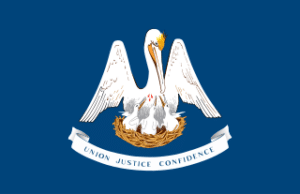
“Investigations by legislature; authority to compel attendance of persons and production of papers
“Either house may send for persons and papers, and compel their attendance or production whenever necessary in the investigation of any matter before them. The chairman or acting chairman of any committee of the senate or house of representatives, or of any joint committee composed of members from both, may administer the oath to any witness who may be called before them to testify in relation to any subject referred to them for their consideration” (Louisiana Revised Statutes 24:2).
House Rules #
“A select committee established pursuant to this Paragraph shall have the same powers, duties, and authorities and shall be subject to the same rules as standing committees. Specifically, each select committee is expressly granted the power and authority to hold hearings, subpoena witnesses, administer oaths, require the production of books and records, and to do all things necessary to accomplish the purpose assigned to it by the Speaker, in the same manner and subject to the same procedures provided in House Rule 14.51 for standing committees and joint committees and subcommittees thereof” (House Rules 6.1).
Senate Rules #
“Each standing committee established by Rule 13.1 and each joint committee established pursuant to the authority granted in Rule 13.12, and any subcommittee of either, is hereby specifically and expressly granted the power and authority, with the written approval of the President, to hold hearings, subpoena witnesses, administer oaths, require the production of books and records, and to do all other things necessary to accomplish the purposes of the study, hearing, or investigation assigned to it by the Senate or by the legislature or by a majority of the members of the committee. However, if a study or investigation is undertaken during the interim between sessions, a subpoena or a subpoena duces tecum shall issue only upon the approval of a majority of all the members of the standing committee and of the President and upon the rendition of a special order of the Nineteenth Judicial District Court or of any other judicial district court, subject to general rules of venue, authorizing the committee to issue the subpoena or subpoena duces tecum, in which order the court may prescribe such requirements and conditions as it may consider just and reasonable. In the event a subpoena or subpoena duces tecum is not honored, the standing committee or joint committee also shall have the power to punish for contempt and to provide for the prosecution of any individual for refusal to testify, false swearing, or perjury before the committee or subcommittee in accordance with law” (Senate Rule 13.15).
Joint Rules #
“A. Each standing committee of the Senate and the House of Representatives shall conduct legislative oversight of the administration of laws and programs by agencies supported entirely or partially by state funds, including but not limited to those program evaluation functions authorized in R.S. 24:691-693 to be performed by the Joint Committee on Legislative Oversight; and to that end each standing committee shall have the powers, authorities, privileges, and duties therein conferred upon the Joint Committee on Legislative Oversight to perform all such functions. The rules of procedure of each house for standing committees shall apply to the extent possible in the performance of these functions.
“B. Each standing committee shall have responsibility for oversight of those statutory entities for which the committee has jurisdiction in accordance with the rules of the respective house” (Joint Rule No. 16).







